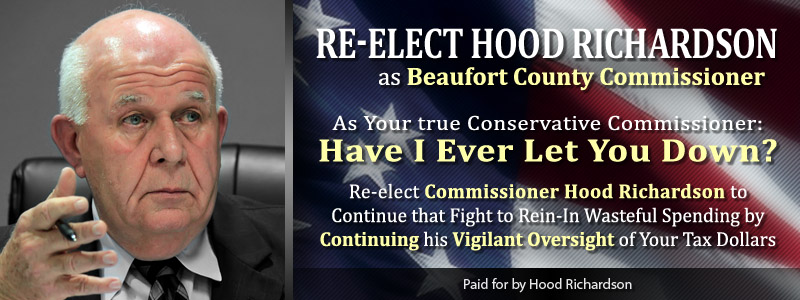Your Public Square Disclosing what is True, what is Real
COVID-19: Whatís Been Done, What More the State Should Do
Publisher's note: The author of this post is Brenee Goforth for the John Locke Foundation.
The John Locke Foundation's research team is putting out a package of policy recommendations focused on the Coronavirus this week. The schedule of policy briefs is as follows:
The first brief in the half-dozen scheduled for this week was written by JLF's Health Care Policy Analyst, Jordan Roberts. The piece focuses on what North Carolina's reaction to the Coronavirus outbreak has been, and what more the state should do.
As for what the state has already done, Roberts writes:
Roberts offers suggestions for more action that can be taken to aid in virus mitigation:
Read the full brief HERE. Read the second COVID-19 brief, written by JLF's Joe Coletti, HERE.
Go Back
The John Locke Foundation's research team is putting out a package of policy recommendations focused on the Coronavirus this week. The schedule of policy briefs is as follows:
- Monday: (1) Health Care and (2) the State Budget
- Tuesday: (3) K-12 Education and (4) Affected Workers (paid sick leave and unemployment)
- Wednesday: (5) Reducing Red Tape and Regulations and (6) the Economy
The first brief in the half-dozen scheduled for this week was written by JLF's Health Care Policy Analyst, Jordan Roberts. The piece focuses on what North Carolina's reaction to the Coronavirus outbreak has been, and what more the state should do.
As for what the state has already done, Roberts writes:
- Gov. Cooper's emergency declaration waived the licensure requirements for health and behavioral health professionals, which would otherwise require a North Carolina license to provide care in the state.
- ...Last week, the state lifted Certificate of Need (CON) restrictions on hospital beds... To increase beds or buy new equipment in North Carolina, a health care provider would normally need permission from the state. Hospitals and other providers should be able to increase or convert beds to meet the needs of their community rather than seek permission from a Raleigh-based government board. This regulation should remain lifted indefinitely.
Roberts offers suggestions for more action that can be taken to aid in virus mitigation:
- The state should waive requirements for out-of-state telemedicine providers to increase access for patients. Increasing access to telemedicine could help to coordinate patient care and keep unnecessary visits to a minimum.
- To free as many essential medical professionals as possible, the state should consider granting pharmacists the ability to test and prescribe medication for non-chronic conditions such as strep or the flu... This could free up primary care doctors and other point-of-contact providers who will need to conduct testing and treatment for COVID-19-related illnesses.
- Another way to increase the number of health care providers available would be to grant nurse practitioners full practice authority. Again, to free up and better utilize all available health care personnel, we should remove any restrictions that would hinder health care professionals from practicing to the full extent of their training...
- Finally, the state should request a Section 1135 Medicaid waiver to eliminate some burdensome regulations within the Medicaid program... This would allow for much more flexibility for providers to care for Medicaid patients.
Read the full brief HERE. Read the second COVID-19 brief, written by JLF's Joe Coletti, HERE.
| Coronavirus Testing Concerns Remind Us About the Supply Side of Health Care | John Locke Foundation Guest Editorial, Editorials, Op-Ed & Politics | Reform Could Boost the Number of American Physicians |
Latest Op-Ed & Politics
|
protecting children and parents from gender ideology promoters
Published: Friday, April 26th, 2024 @ 6:45 am
By: John Steed
|
|
Biden wants to push this in public schools and Gov. deSantis says NO
Published: Thursday, April 25th, 2024 @ 9:19 pm
By: John Steed
|
|
eve 45% of Latinos support mass deportation
Published: Thursday, April 25th, 2024 @ 12:40 pm
By: John Steed
|
|
this at the time that pro-Hamas radicals are rioting around the country
Published: Thursday, April 25th, 2024 @ 8:01 am
By: John Steed
|
|
Pro death roundtable
Published: Wednesday, April 24th, 2024 @ 12:39 pm
By: Countrygirl1411
|
|
populist / nationalist anti-immigration AfD most popular party among young voters, CDU second
Published: Wednesday, April 24th, 2024 @ 11:25 am
By: John Steed
|
|
political scheme behhind raid on Mar-a-Lago
Published: Wednesday, April 24th, 2024 @ 9:16 am
By: John Steed
|
|
how many of these will come to North Carolina?
Published: Tuesday, April 23rd, 2024 @ 1:32 pm
By: John Steed
|
|
Barr had previously said he would jump off a bridge before supporting Trump
Published: Tuesday, April 23rd, 2024 @ 11:37 am
By: John Steed
|
|
Babis is leader of opposition in Czech parliament
Published: Tuesday, April 23rd, 2024 @ 10:28 am
By: John Steed
|
|
illegal alien "asylum seeker" migrants are a crime wave on both sides of the Atlantic
Published: Tuesday, April 23rd, 2024 @ 9:44 am
By: John Steed
|
|
only one holdout against acquital
Published: Tuesday, April 23rd, 2024 @ 9:01 am
By: John Steed
|
|
DEI now includes criminals?
Published: Monday, April 22nd, 2024 @ 8:33 pm
By: John Steed
|
|
Biden regime intends to force public school compliance as well as colleges
Published: Monday, April 22nd, 2024 @ 1:55 pm
By: John Steed
|
|
clamps down on oil drilling in Alaska
Published: Monday, April 22nd, 2024 @ 9:09 am
By: John Steed
|
|
plan put in place by Eric Holder
Published: Monday, April 22nd, 2024 @ 7:38 am
By: John Steed
|























